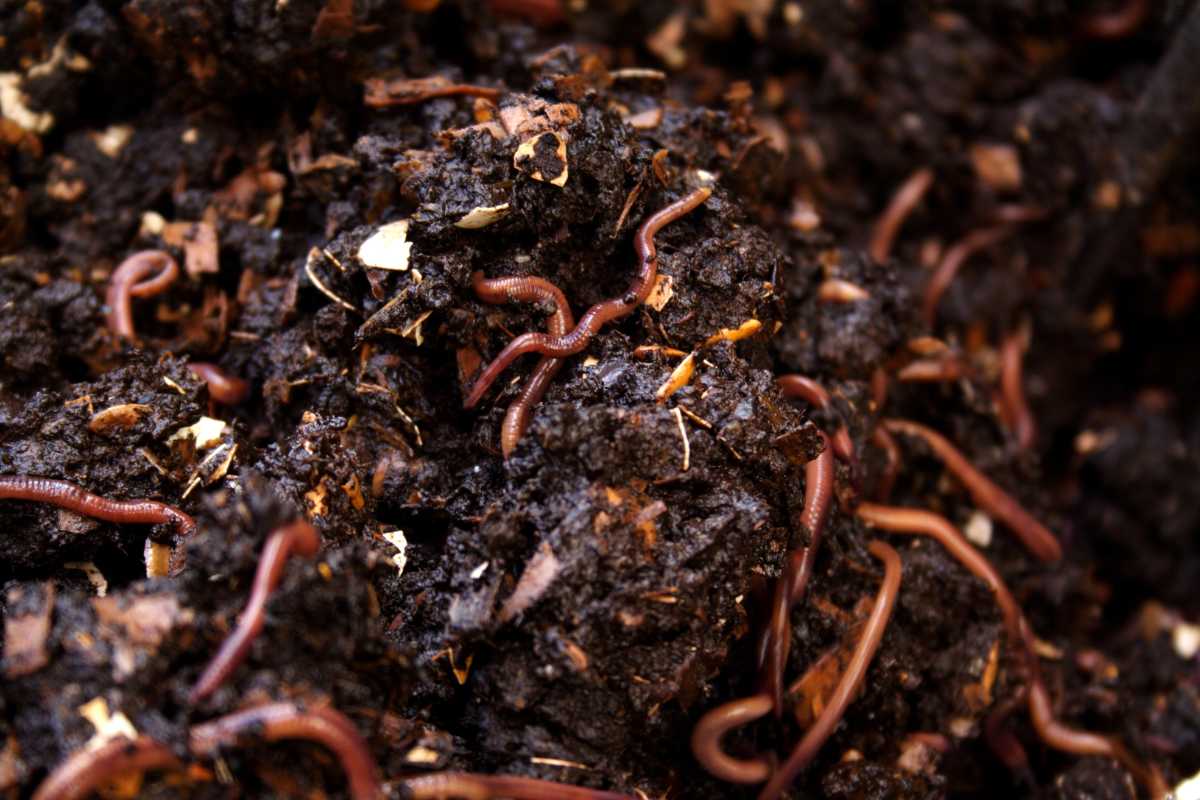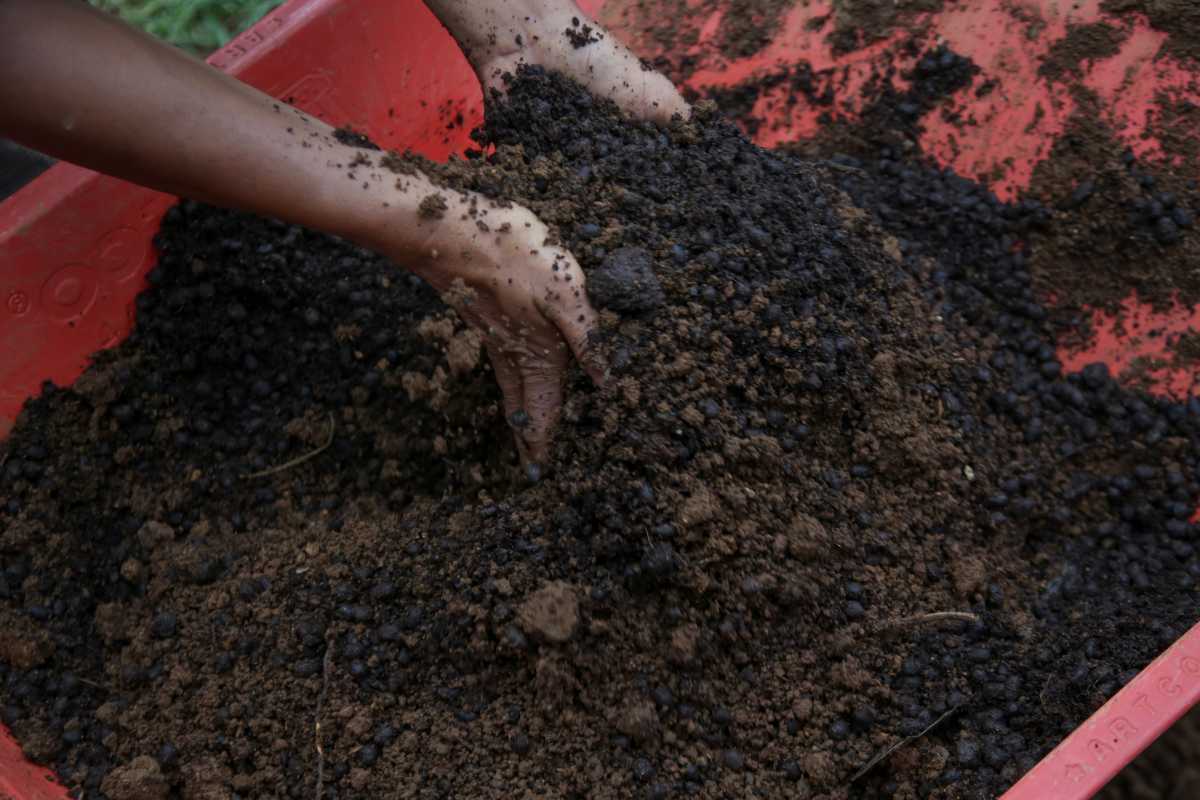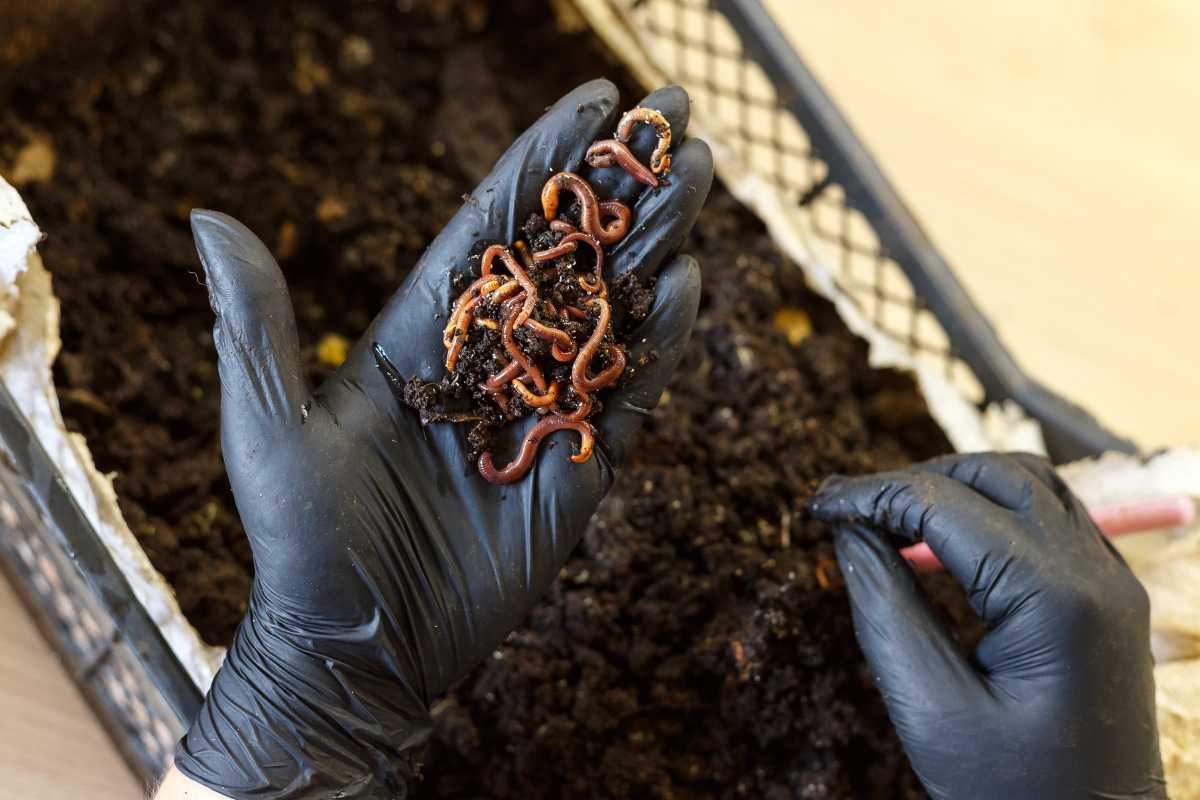Vermicompost is a type of compost, but there are some fundamental differences between the two.
Essentially, we are talking about two different composting methods and products of these methods. Most composting methods will produce compost, so why is worm composting any different?
Vermicomposting is the only method of composting in which the end result is called something other than compost. So what sets vermicompost apart from other decomposed materials?
In this article, I will go into a bit of detail about the differences and similarities between vermicompost vs compost. I’ll also explain how to use them and which one is better for plants.
Vermicompost vs Compost Overview

I will be comparing vermicomposting with my preferred composting process, which is cold composting.
Cold composting is a low-maintenance method in which you pile up your organic waste and leave it to rot down.
The only requirements for cold composting are the right mix of carbon and nitrogen-rich materials and the time to let it rot down, which could be up to a year or more for the decomposition process to complete.
Hot composting is similar to cold composting, but instead of piling up the material on the ground, you build a heap of compostable material and keep it at an elevated temperature (usually around 70 degrees Celsius).
Hot compost piles will provide finished compost in 6-9 months and have less potential for weed seeds to survive.
What is Vermicompost
Vermicompost is the product of worm composting. It consists of decayed organic matter and bedding materials like coco coir, but primarily of worm castings.
It is this high content of worm castings in vermicompost that sets it apart from traditional compost.
Vermicompost is only made of food scraps and carbon-rich materials like cardboard. While you can add garden waste to a worm compost bin, you won’t usually have enough space in your worm bin for all of your garden waste in addition to the food waste.
What is Traditional Compost
Traditional compost is made up of rotted organic matter. It is very likely that compost will contain worm castings, but the majority of the material will be broken down by microbes.
You can add a larger variety of organic materials to your compost pile than you can to your worm bin.
Raw materials you can add to a regular compost pile include more garden waste, plant waste, citrus fruits, and onion or garlic peelings.
When and How to Use Vermicompost?

Vermicompost can be used in a multitude of ways, including as a mulch, a fertilizer, and an additive for soil or potting mixes.
For more information, check out my other article, “How To Use Worm Castings.”
Your only issue with worm castings might be the amount of vermicompost you will get compared to how much you can use. You probably won’t have enough castings to dig over your vegetable garden soil completely.
However, you can make your vermicompost go further by creating a vermicompost tea or worm tea from worm castings.
Vermicompost contains many valuable nutrients, and it is incredibly beneficial to add to potting mixes where plants have limited access to soil nutrients.
When and How to Use Traditional Compost
Compost can be used in all the same ways as vermicompost, although you will probably have a lot more of it to spread over your vegetable garden.
Vermicompost vs Compost – Which is Better?
Whether vermicompost or compost is better comes down to how you want to use it.
If you have a large area to cover with compost or a lot of garden waste to break down, then traditional composting is the way to go. If you have limited space or just have kitchen scraps to compost, then vermicompost is better.
However, if you compare how beneficial a spade full of compost is to a spade full of vermicompost, then vermicompost will come out on top.
The nutrient content of vermicompost is substantially higher than that of ordinary compost. The increased amount of nutrients comes down to the high concentration of worm castings in vermicompost.
The worm castings also give vermicompost the upper hand when it comes to pest and disease control. Vermicompost is also more beneficial when made into tea due to its nutrients and bacteria.
If you have the space, you can reap the benefits of both compost and vermicompost by having a worm bin and a regular composter outdoors.
You can use your compost to dig into your soil and use it as a mulch. Then you can use vermicompost for potting soil to give the plants that need it an extra boost. You can also add the leftover vermicompost from making vermicompost tea to your compost heap.
Vermicompost vs Compost – Which is Right For You?

Both of these types of composting have advantages and disadvantages, so you may be wondering which one to use yourself. You can use both of these methods in conjunction with each other, but this can be daunting if you’re starting with both simultaneously.
Here are different scenarios to help you decide which method is right for you right now.
Use traditional cold or hot composting if:
- You have plenty of outdoor space and an area to dedicate to a compost pile.
- You will be composting lots of garden waste, as well as kitchen scraps.
- You have a large vegetable patch to dig over and add finished compost to.
- You have a large area of soil that needs amending.
- You just want to dump stuff onto a compost heap and leave it. Cold composting is perfect for this.
- You are in no hurry for compost to be ready and can wait for at least six months before I need usable compost.
Use vermicomposting and composting worms if:
- You have limited or no outdoor space.
- You will primarily be composting kitchen scraps and household compostable waste.
- You don’t need much compost, just enough for potted plants or some worm tea. Vermicompost can be stored for around a year, so if you even have an excess, you can store it. See my other article, “How to Store Worm Castings” for more information.
- You are comfortable handling worms.
- You want a fertilizer that is high in nutrients, and has pest and disease repellant qualities.
Vermicompost vs Compost Final Thoughts
There isn’t really any clear winner when comparing vermicompost versus compost.
Both are great ways to get rid of kitchen waste and turn it into something useful. However, they do differ in their nutrient levels and the time it takes to make them.
If you’re looking for a quick way to get started, then conventional compost might be the best option for beginners.
I hope this helps!
Here are some other composting articles to learn more:

